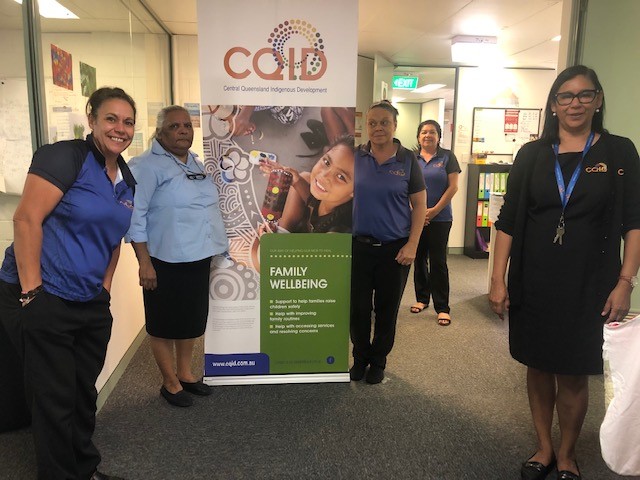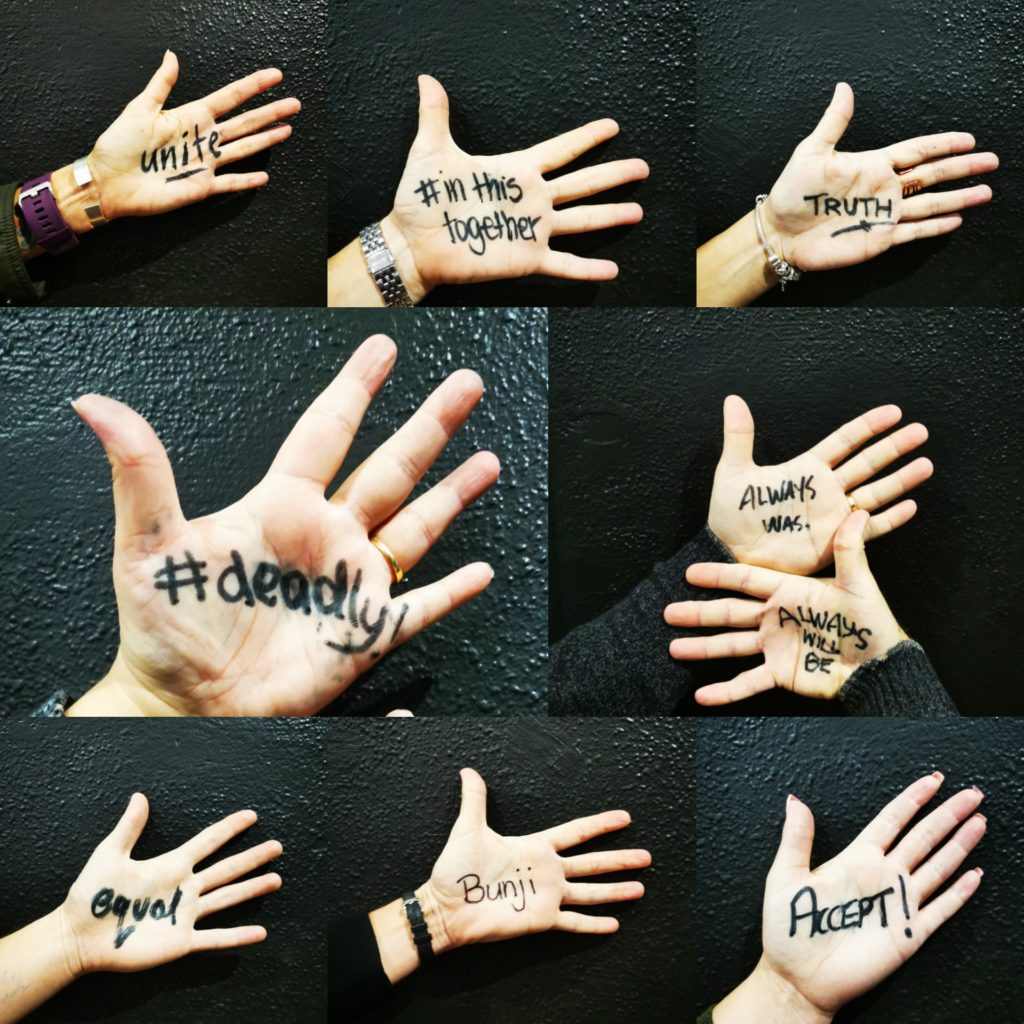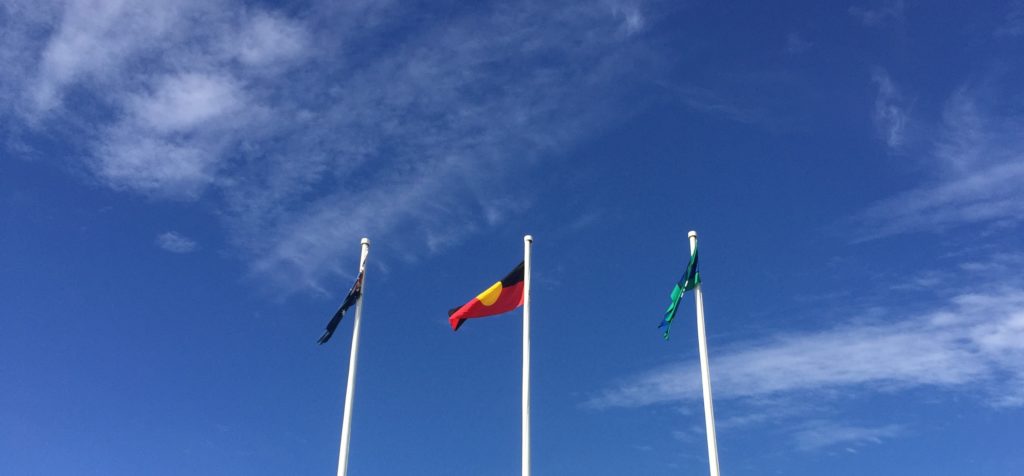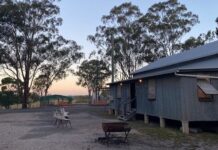
When the Aboriginal flag was raised earlier today for National Reconciliation Week there was a small group of Indigenous leaders in attendance, but it felt like the whole community was present.
Mayor Jack Dempsey said it was important to continue the tradition.
“As per current Queensland Health guidelines we had a much smaller group than usual for our National Reconciliation Week flag raising but we still stood in solidarity,” Mayor Dempsey said.
“This year’s theme is In This Together and, when National Reconciliation Week organisers chose the theme last year, they would never have imagined the challenges and upheaval that has been caused this year by COVID-19.
“This year’s theme is also a reminder that we must find new ways of communicating and helping those in need and that we are, indeed, all in this together.”
Bec Domaille, Director of the Taribelang Aboriginal Corporation, said it was a time to move forward.
“We hope to move forward together in the spirit of kindness, strengthening relationships and working collaboratively to celebrate our differences and embrace diversity,” Bec said.
“When we can achieve this we will truly be ‘in this together’.”

Veronica Bird, Community Development Officer for Central Queensland Indigenous Development said it’s about working together.
“Reconciliation means different things to different people,” Veronica said.
“To CQID it means both way relationships built on trust and respect existing between Aboriginal and Torres Strait Islander and non-Indigenous Australians throughout society.
“CQID supports and promotes Aboriginal and Torres Strait Islander histories, our rich cultures and rights are a valued and recognised part of a shared identity and, as a result, supports and fosters national unity.”
Schools have an important part of play in reconciliation, according to Aunty Cheryl Butler, Community Education Counsellor with Isis State High School and member of the Bundaberg Aboriginal Corporation for Women.
“I feel in my area of work in the school community at Isis District state High School and local community it is very important for Reconciliation to put forward the footprints and the pathways for our future generations as we are all in this together,” Aunty Cheryl said.
“It is also important to invite the Elders’ thoughts and engagement as a very important part of the healing and moving forward.
“This year 2020 has been a big change for Reconciliation Week as we come together online for our thoughts and words and know we can support each other no matter what.”
Dr Kerry Blackman from Gidarjil Development Corporation had a direct message for government.
“Stop doing things to us! Stop doing for us! Start doing things with us – let us set our own agenda,” Dr Blackman said.
Meanwhile, an international perspective came from Troy Johnson, Community Partnerships Officer from the Department of Education, talking about the early days of National Reconciliation Week.
“I was in Wilcannia near Broken Hill and were asking communities the same thing: What does reconciliation mean?,” Troy said.
“After hours or throwing ideas a man from the Netherlands stood up and gave what I believe is the foundation for reconciliation.
“He said “you can this and you can say that, but I have been in this country for 10 years and I just want to say, thank you.”
“Reconciliation to me is just that.
“Restoring heartfelt friendly relations that continue to grow through the recognition of the OLDEST LIVING CIVILISATION on the planet.”

Sandra Capetta from Bundaberg Regional Art Gallery reflected on the past and the future.
“To me Reconciliation Week makes me grateful for the opportunities available to Indigenous people in 2020,” Sandra said.
“I reflect on and appreciate the efforts of all those who have come before me, which made it possible for me to have a seat at the table today.”
Selina Hill, Council’s Cultural Development Officer said National Reconciliation Week was a time for respect.
“Reconciliation to me means respecting the Old Peoples’ respect for they fought the fights to give us the rights and freedoms which we all enjoy today,” Selina said.
“During these ‘unprecedented times’ we are all ‘In this Together’ and I have no doubt regardless of our heritage, we are drawing upon the virtues of resilience and strength, just like our ancestral footsteps before us.”
Robert McLellan, Council’s Community Arts Development Officer, who is of Gooreng Gooreng and Taribelang descent, shared the theme in Taribelang language:
“ŋalin ŋin ŋay-ŋa”, Robert said, in Taribelang.
“You and me! All of us, together.”
“ŋalin means ‘together’, also ŋulam means “you mob”, a collective noun in Taribelang language.”
Everyone in the community can acknowledge National Reconciliation Week by giving a virtual Acknowledgement of Country, available here
To find out more about National Reconciliation Week visit the website.

- Previous news







